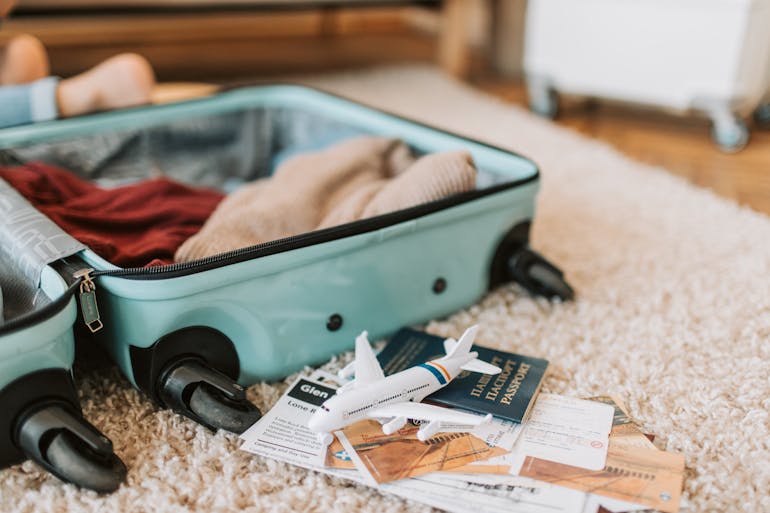
When bringing personal items to Turkey, knowing the country’s customs regulations is essential to avoid delays or unexpected fees. Like many countries, Turkey has specific rules about what you can bring, how much, and when certain items require declaration. Whether traveling with personal electronics, valuable jewelry, or even medication, understanding customs policies can make your arrival smoother and stress-free.
This guide will walk you through Turkey’s customs process, covering duty-free allowances, restricted items, and key tips to speed up your entry. With the right preparation, you’ll be ready to navigate Turkish customs confidently, ensuring a hassle-free start to your journey.
Overview of Turkish Customs Regulations

A basic understanding of Turkish customs regulations is key to a smooth arrival when bringing personal items to Turkey. Turkish customs generally allow duty-free entry for personal effects, including clothing, electronics, and toiletries, provided they are for personal use and not for resale.
Restricted items, including large alcohol or tobacco, may require special approval. Travelers should also be aware of limits on currency import and export. You must declare amounts over a certain threshold. As you probably know, travel is good for your well-being, but knowing what to expect at customs will help you avoid stress and focus on enjoying Turkey’s rich culture and scenic beauty.
Duty-Free Allowances for Personal Items
Packing for traveling abroad can feel overwhelming, but careful planning ensures you have all the items you should bring to make your stay comfortable and stress-free, especially if you plan on living abroad. Among the essentials to pack, you’ll need financial items, electronics with appropriate adapters, and clothing or personal necessities tailored to your destination.
If you’re going to Turkey, whether for a week or a year, understanding the country’s duty-free allowances can help streamline your packing. Turkey allows a variety of personal items without incurring duties, including clothing, small electronics, and certain toiletries, as long as they are for personal use. However, remember that electronics are typically restricted to one unit per type—such as one laptop or camera—per traveler. Exceeding these limits or carrying multiple high-value items may require a declaration and could lead to additional fees.
By familiarizing yourself with these guidelines, you can avoid unnecessary expenses and focus on settling into your new surroundings with everything you need.
Declaring High-Value Items at Turkish Customs
When bringing high-value items into Turkey, such as expensive jewelry, professional cameras, or specialized equipment, it’s important to declare them at customs. Declaring these items upfront helps prevent potential fines or confiscation upon arrival or departure. Items valued above Turkey’s customs allowance may require additional paperwork and could incur import duties if they aren’t registered for temporary import.
If these valuables are only for personal use during a short visit, consider documenting them with a detailed inventory or purchase receipts to show ownership. For longer stays, you might have to complete additional forms and obtain permission to import temporarily.
Restricted and Prohibited Items to Avoid Bringing
When bringing personal items to Turkey, it’s essential to know which items are restricted or prohibited to avoid complications at customs. Restricted items include certain electronics, large cash, and specific medications. All of these may require prior approval or documentation.
Items like firearms, illicit substances, and materials considered politically sensitive are strictly prohibited and could lead to serious penalties if brought into the country. Additionally, Turkey has strict rules on food items, particularly raw meats and unprocessed dairy, which are not allowed for import. Before you travel, reviewing the Turkish customs website for the latest guidelines is a good idea, ensuring you leave restricted or prohibited items at home.
Process for Bringing Electronics and Technology
Understanding customs regulations when bringing electronics and technology into Turkey will help prevent unexpected issues. Travelers can bring personal-use electronics, like smartphones, laptops, and cameras, without paying duties if they meet quantity limits—typically one of each item per person.
For those staying longer or planning to register devices in Turkey, note that some electronics may need to be officially registered with Turkish authorities, especially if you plan to use local SIM cards in your devices. Also, Turkey’s customs are strict about items that appear for resale. So, avoid bringing multiple devices of the same kind. To capture the beautiful things to see in Turkey, having your devices properly declared and registered ensures they’re ready to use without interruption.

Handling Personal Medications and Health Supplies
Bringing personal medications and health supplies into Turkey requires careful planning to ensure a smooth process at customs. Turkey allows travelers to bring personal-use medications, but a doctor’s note or prescription should accompany prescription drugs, ideally translated into Turkish or English. This documentation helps customs officials confirm the medication’s necessity and avoid potential confiscation.
A doctor’s note explaining the use of medical devices such as CPAP machines or insulin pumps is wise. Over-the-counter medications are generally allowed in reasonable quantities, but check Turkish customs regulations if you plan to bring larger amounts.
Special Rules for Bringing Pets to Turkey

Turkey requires pets to have up-to-date vaccinations, particularly for rabies, administered at least 30 days before travel. You’ll also need a veterinary health certificate. These are typically issued within ten days of arrival and certify your pet’s health and vaccination status.
Some pets may require an additional microchip for identification, which must meet ISO standards for compatibility with Turkish systems. Certain breeds may face further restrictions or, in rare cases, may not be permitted entry. So, prepare all necessary documents to ensure your pet’s safe and hassle-free journey alongside you.
ips to Speed Up the Customs Process
Follow these practical tips to make your experience at Turkish customs faster and stress-free. First, organize your documents in an easily accessible place, such as a travel folder, for quick presentation. Of course, pack efficiently by keeping items you may need to declare at the top of your luggage, making them easy to reach during the inspection.
Use the “Green” or “Red” channel correctly—Green if you have no items to declare and Red if you do. Consider arriving at non-peak times to avoid long lines, and if possible, use Turkey’s e-Declaration system for pre-arrival customs processing. These small steps can help you breeze through customs and start enjoying your time in Turkey.
Ready for a Smooth Entry into Turkey!
Preparing for customs and knowing what to expect when bringing personal items to Turkey will save time and avoid unnecessary stress. A little preparation goes a long way toward a seamless arrival, allowing you to focus on enjoying everything Turkey has to offer. Safe travels, and happy exploring!
Photos used: